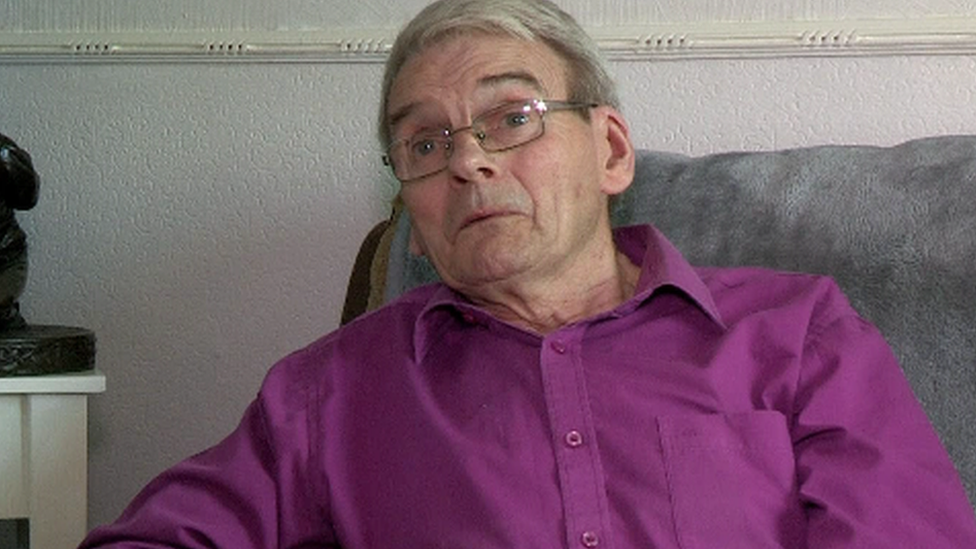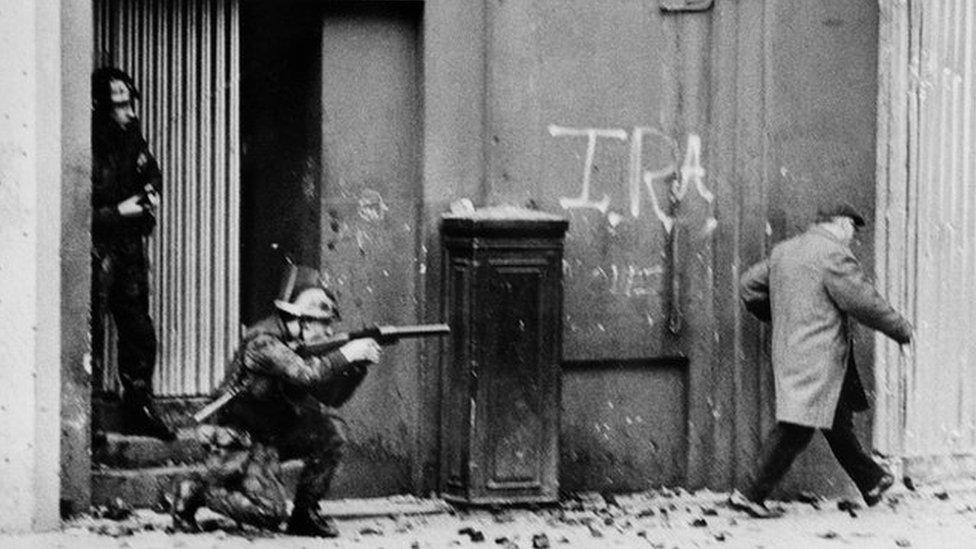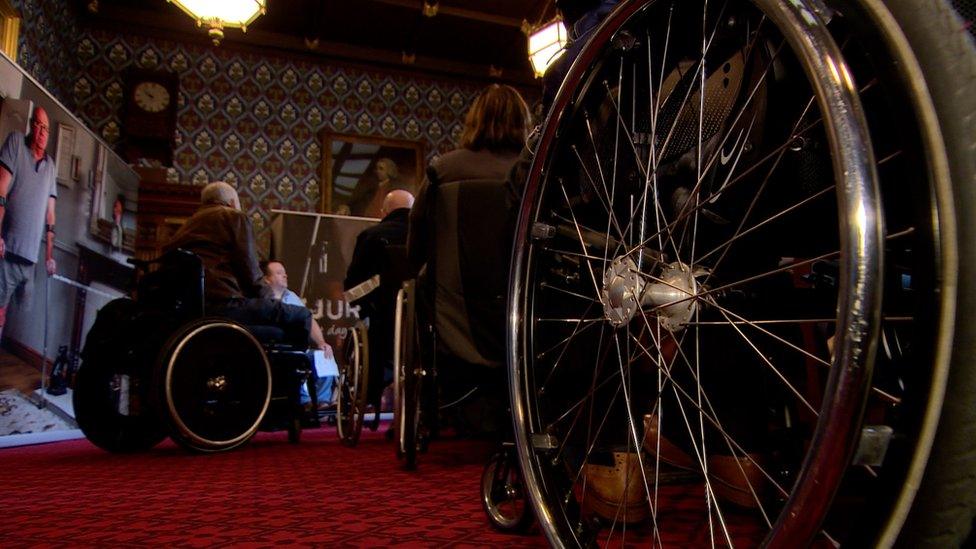Troubles pension: NI Executive must fund scheme, court rules
- Published

Stormont's Executive Office is under a legal duty to fund a pension for people badly injured in the Troubles, Northern Ireland's Court of Appeal has ruled.
The scheme is due to open for applications next month but it is not clear who will fund the payments.
Stormont and Westminster have been engaged in a long-running row about who is responsible.
On Tuesday, the Court of Appeal said it was giving the parties four weeks to find a solution.
It said if that was not possible the case would be relisted to include Stormont's Department of Finance as an additional notice party.
A spokesperson for the department said Finance Minister Conor Murphy had been pressing Northern Ireland Secretary Brandon Lewis to meet him about the pension since September.
A UK government spokesperson said Mr Lewis had "always been clear" that the responsibility for funding the scheme lay with the Stormont Executive.
It is understood the NI secretary has agreed to meet Stormont ministers and has asked for more detail about estimated costs and wider spending plans.
The pension scheme was initially approved at Westminster when devolution in Northern Ireland had collapsed.
Since power-sharing returned in January 2020, estimates from Stormont for the cost of the scheme have been suggested to run to as high as £800m.
The executive argues that Westminster should help fund it, as it is a UK-wide scheme and people injured outside Northern Ireland will be able to apply.
Last year, a judge ruled that the Executive Office was acting unlawfully in delaying Troubles pensions, following a legal challenge from some victims.
Tuesday's appeal was brought by Brian Turley, one of those known as the Hooded Men, who were detained and subjected to special interrogation methods by the British military in the early-1970s.
Delay 'another form of torture'
In the ruling, Northern Ireland's Lord Chief Justice Sir Declan Morgan said there was a legal duty on the Executive Office regarding the funding, to ensure payments could be made.
He backed submissions that there is no discretion involved but said the court expressed "no view" on the political dispute between the Stormont Executive and Northern Ireland Office.

Brian Turley instigated the latest court action
Speaking after the hearing, Mr Turley said the judgement confirmed there were "no justifiable reasons" for delaying the payments to victims.
"The need to keep taking cases to court to obtain what I am entitled to is another form of torture," he said.
Alan McBride from Wave Trauma Centre told BBC Newsline that he was "disappointed" that it had been left to the courts system to make progress with the scheme.
"It is up now to the executive and Northern Ireland Office to sit down around the table like mature adults and sort this out once and for all."
Call to boost Stormont's budget
DUP leader and First Minister Arlene Foster said the ruling was "reassuring" for victims and that she looked forward to payments being issued.
"Whilst the payments will be made from the Northern Ireland Executive, there is a strong argument that the government should be increasing the NI budget accordingly to fund the pension," she added.
Sinn Féin's Linda Dillon said her party was committed to ensuring payments were made as quickly as possible, but insisted the executive alone does not have the resources to deliver it.
Stormont's Justice Minister Naomi Long said she hoped Stormont and Westminster could agree a resolution.
Allow X content?
This article contains content provided by X. We ask for your permission before anything is loaded, as they may be using cookies and other technologies. You may want to read X’s cookie policy, external and privacy policy, external before accepting. To view this content choose ‘accept and continue’.

Chair of Stormont's Executive Office Committee, the SDLP's Colin McGrath said it was "welcome" that a four-week deadline had been set.
"While the British government clearly must meet their financial commitments to this scheme, the public row between the Secretary of State and Finance Minister is unedifying and also serves to re-traumatise victims and survivors," he said.
Ulster Unionist assembly member (MLA) Doug Beattie described the ruling as the "latest abject failure" in supporting the needs of Troubles victims.
"The Executive Office has not only a moral obligation but now a legal one to provide the funding to this scheme and end the uncertainty for those who have spent years suffering as a result of injuries caused by no fault of their own," he said.
The scheme is due to run for two or three decades and payments are to be backdated to 2014, the year in which it was first agreed.
Last August, Stormont's Department of Justice was designated to administer the scheme.
But in January, the Department of Finance did not set aside funding for payments in the draft budget for 2021-22, only the administrative cost of the pension.
What is the Victims' Payment Scheme?
The legislation came on to the statute book in January 2020. To qualify, applicants must have an injury which is severe and permanent and caused by no fault of their own.
That can be physical injury, such as a loss of limbs, or psychological, caused by being present at a bombing, for example.
The scheme covers violence related to the Northern Ireland Troubles between 1966 and 2010, including incidents in Great Britain and Europe.
Non-UK residents injured outside the UK cannot apply - such as victims of the Dublin and Monaghan bombings carried out by loyalists in 1974.
People will get between £2,000 and £10,000 a year for the rest of their lives.
Upon their death, a spouse or carer, will get the payments for a further 10 years.
The scheme is a recognition that criminal injuries awards from decades ago were largely inadequate.
Related topics
- Published29 August 2020

- Published19 January 2021
